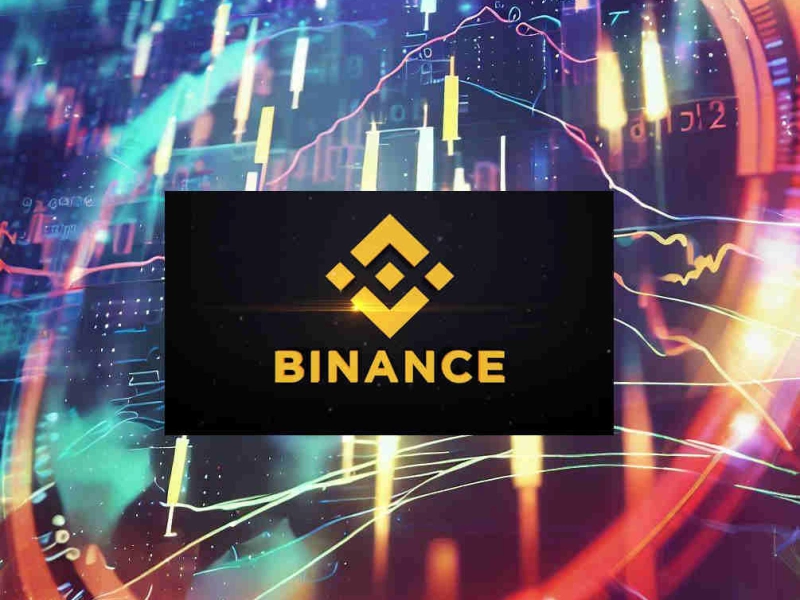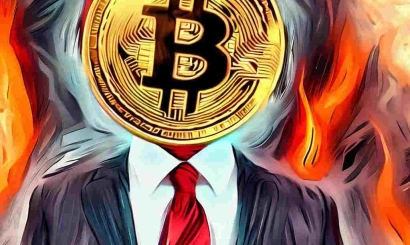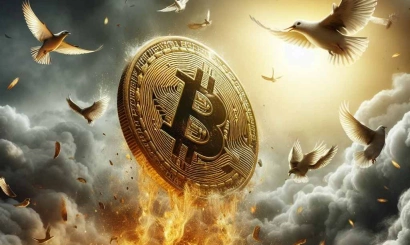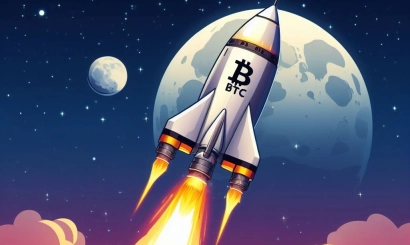Binance is leaving Russia. Why it happened and what to do for its users
Why cryptocurrency exchange Binance is leaving Russia and how to be its users
The exchange announced a complete withdrawal from the Russian market, but is transferring users to a new platform launched the day before.
The world's largest cryptocurrency exchange Binance has entered into an agreement to sell its entire Russian business. According to the exchange's official publications, the transition of existing users to a new platform and the shutdown process will take up to one year.
The "new platform" refers to the CommEX exchange, which announced its opening a day before the official announcement of Binance's departure from Russia. New users who have undergone a personal data verification procedure will be partially redirected to the CommEX platform. Binance CEO Changpeng Zhao said that "everything possible" will be done to smoothly transfer Binance customers to the new platform.
The new exchange has already opened social media pages and Telegram channels, and support agents in Russian-language chat promise to "provide details and answer questions" in the near future. The exchange's homepage says it provides access to "one of the largest liquidity pools in the world."
When Binance announced its withdrawal from the Netherlands in June, local customer accounts were similarly moved to local exchange Commerce. Now, as part of the agreement with CommEX, Binance is "fully ceasing its operations" in Russia and Binance will have no right to receive a portion of the profits after the sale and no opportunity to repurchase stakes in the business, representatives of the platform said. Over the next few months, Binance will "close all exchange services and other business lines in Russia."
Previously, Binance has already stated that they are considering a complete withdrawal from the Russian market. Over the past few months, Binance has consistently restricted opportunities for Russian users amid accusations of supporting sanctions circumvention. On August 27, Binance banned clients from Russia from transacting in any currency other than the ruble through its own p2p platform, and disabled users who had been verified as citizens of other countries from transacting in rubles.
In early September, two top managers of Binance, Gleb Kostarev and Vladimir Smerkis, who were responsible for the Russian region, announced their resignation on the same day.
- Why Binance is leaving
Such a decision by Binance "is not surprising," says crypto expert and author of the GFiS Channel Telegram channel Taisiya Romanova. Binance has long been under pressure over its failure to comply with sanctions measures against Russian users. In addition, the labeling of cryptocurrency sent to Binance from the sub-sanctioned platforms Garantex and Bitzlato led to blocked deposits and growing user dissatisfaction. Uncertainty in cryptocurrency legislation by Russian authorities also played a role, she said.
"The share of Russian liquidity was weighty and significant for Binance's business, but taking all these factors into account, the game was no longer worth the candle."
Nevertheless, the decision to sell the business looks "graceful rather than fatal." The offshore structure of the new marketplace is likely affiliated with Binance. Previously, in a similar manner, the crypto exchange EXMO sold the Russian part of the business to a Kazakh structure, in a similar way in 2022 did the broker Freedom Finance, Romanova recalls. RBC-Crypto's interlocutors from market participants say that Kazakh entrepreneurs may also be behind the CommEX platform.
It is not quite clear how liquidity will be distributed on the new platform, or in fact it will be a so-called "kitchen" for Russian users, Romanova argues. In this case, in her opinion, the mass departure of users to other exchanges will be inevitable. "The same Bybit or BingX have already received a significant increase in new users, and trust in the new structure, of course, will be less. If there will be some technical solution to combine liquidity with the main platform Binapse, there should be no special difference for users," - explains the expert.
"Kitchens" in trading are trading platforms that do not bring the transactions of clients to the real market. They process their clients' requests at the expense of counter requests from other clients. Trading actually takes place only inside the platform itself.
- New platform
The CommEX platform was introduced only the other day, and according to trading statistics (in particular, p2p), it is completely "empty," notes cryptocurrency market analyst Viktor Pershikov. In his opinion, it was opened precisely for the purpose of transferring clients, as Binance, obviously, does not want to lose the Russian market, and although it declares its departure from Russia, it intends to retain its client base and the income generated from Russian clients.
"A new platform always raises questions among users, and one cannot expect all of Binance's Russian clients to come to CommEX. Obviously, many will choose other platforms, but there will be those who will work on CommEX, including through advertising by Binance and various marketing campaigns that will be organized by Zhao's team," the expert predicts. The head of Binance has already announced a 25% discount on trading commissions for holders of BNB cryptocurrency on the new platform.
All legal documents on the CommEX website were posted or updated on September 26 and 27, which may indicate that the service is completely new, comments Denis Polyakov, head of the Digital Economy practice at GMT Legal. The exchange is operated by a company in the Seychelles, where "there is no regulation of activities related to cryptocurrencies." The terms of use of the CommEX service include a list of countries and users from which the exchange does not serve. It includes almost all EU countries, Singapore and the US, as the countries most active in terms of suppressing the activities of unlicensed cryptocurrency service providers, the lawyer notes.
"Despite the fact that there is no direct evidence of a connection between Binance and CommEX in the public domain, indirect signs suggest that CommEX was created by Binance specifically to highlight the Russian part of the service."
Probably, it was done in order to remove the risks of secondary sanctions against legal entities belonging to the Binance group, Polyakov argues: "Apparently, the transfer of work with Russian users to a Kazakh legal entity did not allow Binance to fully protect itself from the claims of European and American regulators".
- Is it necessary to withdraw funds?
From the outside, what is happening looks like an impulsive act, said Nikita Zuborev, senior analyst at Bestchange.ru. In his opinion, it was done either to "blow dust in the eyes" of regulators from the EU and the U.S., or in maximum haste. The fact that the exchange has set a transition period of a year, the expert notes, is a bit disconcerting.
In his opinion, Russian users without an urgent need should not yet keep funds on both Binance and CommEX. "Everyone should assess the risks themselves, but if there is no need to keep funds on the accounts of the exchange during turbulence, we see no reason to continue working with it, especially given the abundance of alternative services," said Nikita Zuborev.
"When users' funds are 'voluntarily-coercively' transferred to another company created less than a day ago, it adds a lot of risks."
In addition, a weighty plus of Binance for Russians was the widest possible p2p market, which gave birth to high competition and the most favorable exchange rates. In conditions of such "smearing" of offers on two independent platforms, this benefit will be lost, the analyst notes.
It is also unclear how in the future will change the practice of applying AML-policy to the funds that will be withdrawn not from Binance, but from the new exchange, adds Zuborev. CommEX representatives have already stated that users can withdraw up to 2 BTC ($53,500 at the exchange rate as of September 27) without going through the Know Your Customer (KYC) procedure. Regulators in other countries may consider this an additional risk and label all users of this exchange without exception as risky transactions.
- Compensation to customers of crypto exchange Mt.Gox and new threats from the SEC. Events of the week
- What is a bitcoin-ETF? How it works and how it affects the cryptocurrency market
- Fortune: Coinbase twice interested in buying European FTX platform
- Venezuelan authorities seize dozens of bitcoin miners as they storm local jail
- Tether to spend $420 million on Nvidia graphics cards for German miner
- A former employee of Alameda Research has revealed the reason behind the major collapse of bitcoin price, which was 88% in 2021.
- "Waiting for the denouement". What will happen to Bitcoin in the coming week?






